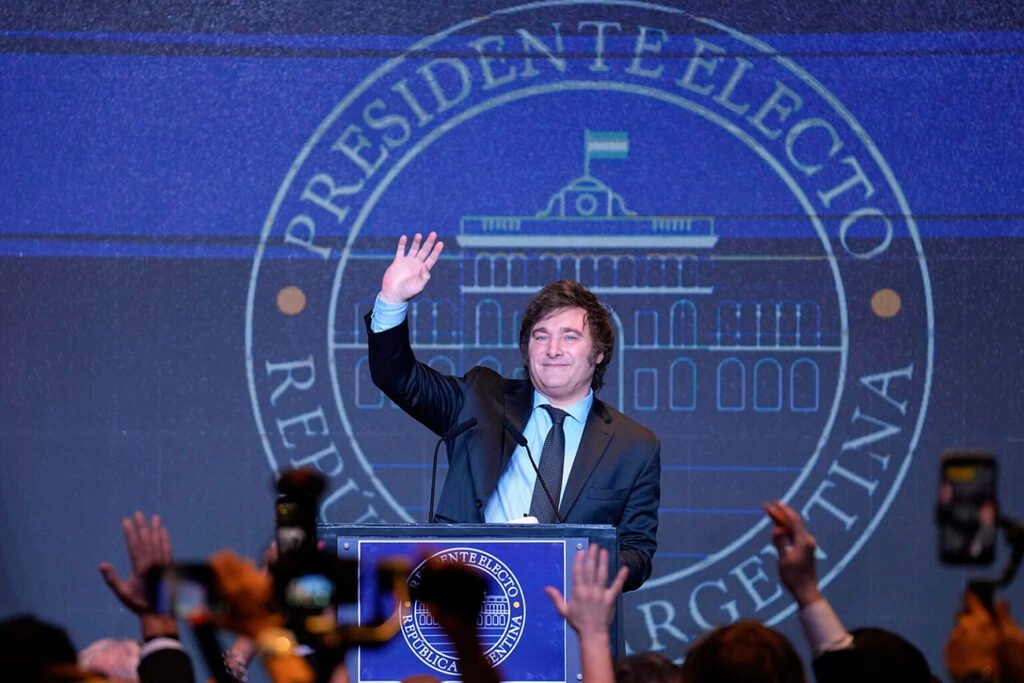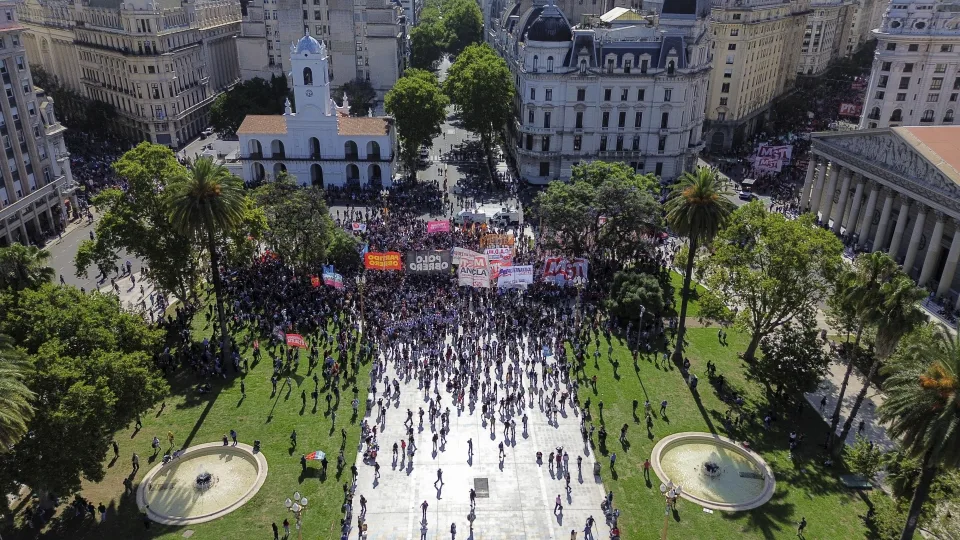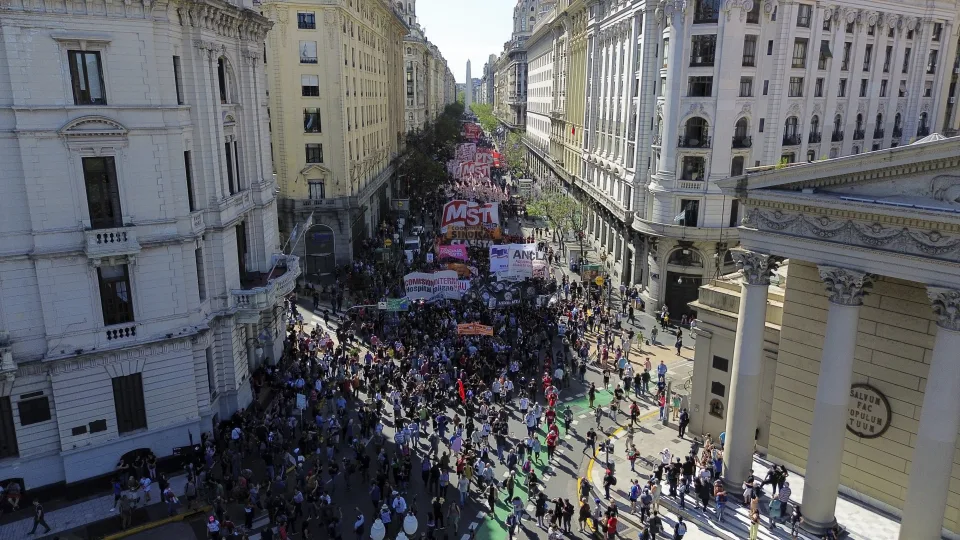In December, just weeks after taking office, far-right president Javier Milei has begun implementing his radical economic policies, plunging Argentina into deeper crisis. His government has rapidly moved to devalue the peso by over 100% and cut essential state subsidies for fuel, transport, water, and electricity. These measures have caused prices to soar overnight, worsening an already dire situation with annual inflation nearing 160%. In addition to this, Milei has announced mass layoffs of public employees, halted all public infrastructure projects, and refused to sign new contracts, all in the name of reducing the budget deficit.
These policies, favoring big business and the interests of the ruling capitalist class, have sparked outrage among Argentina’s working class. The burden of the economic crisis has been shifted onto the shoulders of the poor, while the rich continue to profit. Multinational companies and financial institutions have benefited from government bailouts, further exposing the hypocrisy of Milei’s so-called “anti-establishment” rhetoric.
Repression as a Tool of Control
Milei’s government has wasted no time in clamping down on dissent. His security minister, Patricia Bullrich, announced a new “anti-picketing” protocol that empowers federal forces to suppress protests and blockades without the need for judicial approval. This crackdown on basic democratic rights is designed to prevent workers and social movements from organizing against Milei’s austerity measures.
Despite these repressive tactics, mass protests have already erupted across the country. On December 20, 2023, tens of thousands took to the streets in defiance of Bullrich’s orders, marking the anniversary of the 2001 “Argentinazo” uprising. The chants of “que se vayan todos” (“kick them all out”) once again echoed through the streets, signaling the determination of the working class to resist Milei’s attacks.

In a blatant attempt to further dismantle Argentina’s social and economic fabric, Milei used an emergency decree to introduce sweeping neoliberal reforms. These measures include the deregulation of rents, the privatization of state-owned companies, and the elimination of protections for workers’ rights. Milei’s policies are setting the stage for hyperinflation, with fuel prices and the exchange rate skyrocketing, adding to the financial burden faced by ordinary Argentinians.
The Fight Against Austerity
The Argentine working class is no stranger to struggle, and Milei’s harsh austerity measures have only intensified class conflict. The workers’ movement is rallying for a general strike and organizing resistance against the government’s brutal policies. While some sections of the trade unions and political left have hesitated, the mounting anger among the masses is undeniable. The streets of Buenos Aires and other major cities have become battlegrounds, as workers refuse to passively accept the destruction of their livelihoods.
Milei’s alliance with former president Mauricio Macri and other establishment figures has exposed the true nature of his presidency: a continuation of neoliberal policies that serve the interests of the ruling elite. His attacks on workers’ rights, pension cuts, and the dismantling of public services have triggered a political crisis similar to the “Rodrigazo” of 1975, when austerity measures led to mass strikes and social unrest.
Preparing for the Struggles Ahead
As 2023 comes to a close, Argentina stands on the brink of a new wave of class struggle. The protests that have erupted in response to Milei’s austerity are only the beginning. The working class, though battered by years of economic crisis, has not been defeated. The need for a unified and independent movement of workers, students, and social organizations is more urgent than ever.
The trade unions, particularly the leadership of the General Confederation of Labour (CGT), must break from their role as mediators of the capitalist system and actively mobilize for a general strike. It is clear that the current leadership is more concerned with preserving their own interests than with defending the rights of the workers. The demand for a Workers’ Congress, where the working class can come together to plan a collective struggle, is becoming increasingly important.

As revolutionaries, it is our duty to prepare the ground for the coming battles. The task ahead is not just to resist Milei’s austerity but to challenge the entire capitalist system that has brought Argentina to this point. The fight for the political independence of the working class, the rejection of imperialist interference, and the struggle for a workers’ government are central to this battle.
Milei’s presidency represents the sharpest expression of neoliberalism and repression that Argentina has seen in decades. His government is determined to crush the working class and roll back decades of hard-won gains. But history has shown that the Argentine masses are resilient. As protests and strikes continue to grow, the ruling class will find it increasingly difficult to impose its agenda.
The road ahead will be challenging, but the working class has the power to turn the tide. By uniting around a clear revolutionary program, Argentina’s workers can not only defeat Milei’s austerity but also build a new society free from the exploitation and oppression of capitalism. The time for action is now, and the struggle for socialism must be at the forefront of this fight.


